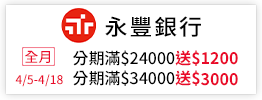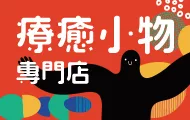Author Bios
Natalka Blok is a dramatist and screenwriter, her plays have been staged in Ukraine at both state and independent theatre as well as abroad. Her texts have frequently been in the short lists of international and all-Ukrainian prestigious competitions It has translations into Polish, Georgian, French, English, Romanian, German and other languages. Founder of the Playwrights Theater (Kyiv). Screenwriter of a number of films and TV series. The winner of the competition from Netflix for Ukraine. In the spring of 2022, fleeing the war, she moved to Basel, where she continues to work.
Andrii Bondarenko is a playwright, journalist, and culturologist with a PhD in Philosophy. He is a co-founder of Kyiv’s Theatre of Playwrights and participant in the Worlwide Ukrainian Play Readings Project curated by John Freedman. Bondarenko currently works as a dramaturg at the Lviv Puppet Theatre. He is the author of numerous plays that have been shortlisted for major Ukrainian drama festivals and performed in theatres throughout Europe. Major productions include:
Ultima Thule at Theatre Kolesa in Kyiv (2023),
Lviv Tango at the Maria Zankovetska Theatre in Lviv (2022),
Survivor Syndrome at HarMyDer Theatre in Lutsk (2022),
The Light from Below: Stories from Ukrainian Basements at the Baron’s Court Theatre in London (2022), and
Asshole at the Golden Gate Theatre in Kyiv (2020). Bondarenko is also the director of the short film
A Night with Natalia (2017) which was screened at festivals in Kyiv and Prague.
Anastasiia Kosodii is a playwright, director, and one of the co-founders of Theater of Playwrights in Kyiv. Before the full-scale Russian invasion, Kosodii often worked with NGOs in Eastern Ukraine in towns on the front line of the war between Ukraine and Russia. Her international work is in connection to the Maxim Gorki Theater (Berlin) and Münchner Kammerspiele Theater (Munich) and the Royal Court Theatre (London).
Maksym Kurochkin is a playwright, screenwriter, and a driving force behind the founding of Ukraine’s Theatre of Playwrights. He was born in Kyiv and studied history at the Taras Shevchenko National University in Kyiv. His plays have been translated and produced at major theatres across Europe and North America. At the start of the full-scale invasion in February 2022 Kurochkin joined Ukraine’s territorial defense and he has since joined the military.
Lena Lagushonkova was born in 1984 into a family of engineers. She studied history at the Luhansk Taras Shevchenko National University and has worked in various fields. She moved to Kyiv at the start of the war in 2014 and made her debut as a playwright at the ’Week of Contemporary Plays’ festival with her play
Baza about women and prostitution. By 2022 more than ten of her plays had premiered in Ukrainian theatres including the cycle of plays about her hometown and its residents -
PGT,
The Mother by Gorky, and
My Banner was Pissed on by a Cat. In 2021 Lagushonkova was a Laureate of the Aurora Festival (Bydgoszcz, Poland) and in 2022 she was awarded the European New Talent Drama Award (Stuttgart, Germany). Since 3 March 2022 she has been living and working in Poland. She likes wine, cats, and buns. She once fell into a canal in Venice.
Olha Matsiupa is a playwright, a theatre historian, and a co-founder of Theatre of Playwrights in Kyiv. Originally from Lviv, Matsiupa graduated in Serbian philology from Ivan Franko National University of Lviv. From 2011 to 2016 she studied at the Maria Curie-Sklodowska University in Lublin, where she received a PhD in Theatre and Literary Studies. In 2014, Matsiupa was an intern at the Academy of Dramatic Arts in Zagreb. In 2019, she received a scholarship from the ’Gaude Po-lonia’ programme. Her plays have frequently been longlisted and shortlisted at the ’Week of Contemporary Plays’ festival (Kyiv) and ’Drama.UA (Lviv). In 2017, her play
Eco Ballad was nominated in the ’foreign drama’ category at the ’Heidelberger Stückemarkt’ in Germany. Matsiupa’s plays have been staged in Rzeszow, Sosno-vec, Khust, Lviv, Severodonetsk and Chernivtsi.
Kateryna Penkova is a playwright originally from Donetsk. She is a graduate of the Kyiv State Academy of Performance and Circus Arts with a degree in acting. Her texts explore the topics of Russia’s war in Ukraine, the occupation of Crimea, violence and sexual harassment, postcolonialism, gender and politics. Her plays have frequently been shortlisted for the Drama.UA festival in Lviv and the Week of Contemporary Plays festival in Kyiv. Her play ’Pork’ was among the winners of the 2020 ’Transmission.UA: Drama on the Move" playwrighting competition organized by the Ukrainian Institute. Kateryna is a co-founder of Ukraine’s Theatre and Playwrights and is currently based in Warsaw.
NatalkaVorozhbyt is a playwright, screenwriter, and director. Her early play,
Galka Motalko was awarded the Eureka Prize in 2003 and her play
The Grain Store, the first major play about Holodomor, was produced by the Royal Shakespeare Company in 2009. She is the co-founder of the Theatre of the Displaced in Kiev and curator of Ukraine’s ’Class Act: East-West’ project which ran from 2016-18. Her 2017 play
Bad Roads first produced by the Royal Court was later adapted into a film directed by the author and was chosen as Ukraine’s official Oscar selection in 2022. Other screenwriting credits include
Cyborgs: Heroes Never Die (2017) and the screen adaptation of Serhiy Zhadan’s
Voroshilovgrad entitled
The Wild Fields (2018).
Translator BiosUilleam Blacker is Associate Professor of Ukrainian and East European Studies at the School of Slavonic and East European Studies, University College London. His research focuses on cultural memory in east central Europe and on Ukraine’s diverse literary heritage. He is the author of
Memory, the City and the Legacy of World War II in East Central Europe: Ghosts of Others (2019), co-author of
Remembering Katyn (2012) and co-editor of
Memory and Theory in Eastern Europe (2013). He has published translations of Ukrainian authors in, among others,
The White Review, Words Without Borders, Modern Poetry in Translation, as well as in several anthologies. His translation of Oleg Sentsov’s
Life Went on Anyway was published by Deep Vellum in 2019.
Jack Clover is a writer, translator and director based in London. He is currently a reporter for
The Sunday Times. From 2017 to 2019, he worked with artists of the post-Euromaidan generation to create original work in government and independent theatres across Ukraine. His production
The Orchard was staged at the Les Kurbas theatre in 2017. Jack also served as director in residence at the
Zaporizhian New Drama independent where he staged
Mars is a Wonderful Place a satirical musical about emigration that toured to Kyiv, Kharkiv and Mariupol the following year. He subsequently founded the company ’Theatre in Two Weeks’ in 2018 and teamed up with the
Theatre of Displaced People in Kyiv in December 2018 to curate the ’Silence isn’t Golden’ festival that saw playwrights Anastasiia Kosodii, Natalia Blok and Maksym Kurochkin create three fully-formed performances with professional directors in just two weeks. In 2019, Jack directed the Ukrainian premiere of Kosodii’s
ATime Traveller’s Guide to Donbas at the Lesia Ukrainka Theatre in Lviv and created, with Kosodii, the musical
Where I Will Remain for Sumy’s National Schepkin Theatre: a piece that remains in repertoire and was last performed in September 2022 despite Russia’s full-scale invasion.
Sasha Dugdale is a poet and translator. Her translations include Natalka Vorozhbyt’s
The Grainstore and
Bad Roads for the Royal Shakespeare Company and Royal Court Theatre, and
In Memory of Memory by Maria Stepanova, shortlisted for the International Booker Prize. Her most recent poetry collection
Deformations was shortlisted for the T. S. Eliot Prize.
Daisy Gibbons is an award-winning translator from Ukrainian and Russian into English. Her literary translations include Tamara Duda’s Shevchenko Award-winning
Daughter (Mosaic Press) and short stories in anthologies
Love in Defiance of Pain: Ukrainian Stories (Deep Vellum) and
Voices of Freedom: Contemporary Writing From Ukraine (8th & Atlas Publishing). Extracts of her work have appeared in
Harpers,
Vanity Fair, and
Los Angeles Review of Books. Gibbons attended the University of Cambridge and lived in Ukraine and Russia for several years. She now lives between London and Wiltshire, UK.
Helena Kernan is a literary translator working from Ukrainian, Russian, French and German into English. Originally from London, she has lived in several European cities including Kyiv, where she worked with the Theatre of Displaced People and the Centre for Civil Liberties. She has been involved in multiple international projects focused on theatre, documentation, witness and historical memory, and is now based in Berlin. She holds master’s degrees in Slavic Studies from the University of Cambridge and the University of California, Berkeley. In recent years she has dedicated herself to studying and translating contemporary Ukrainian drama.
Rory Mullarkey is a playwright and translator of plays. His translations, including
Remembrance Day by Aleksey Scherbak,
Pagans by Anna Yablonskaya and
The Cherry Orchard by Anton Chekhov, have been staged by The Royal Court Theatre, The Bristol Old Vic and The Royal Exchange Theatre, Manchester. His original plays, including
Pity,
Saint George and the Dragon,
Each Slow Dusk, The Wolf from the Door, and
Cannibals, have won multiple awards and have been produced across the UK and internationally.
Patrick Orme studied Philosophy and Modern Languages at Exeter College, Oxford from 2016 until 2020. From 2018-2019, he lived, worked, and studied in Kyiv including working for the thinktank Collegium of Anna Yaroslavna, East. While in Kyiv he also began translating
A Time Traveller’s Guide to Donbas. He wrote his dissertation on Soviet Avant-Garde theatre in the early 20th century. Orme currently works as an advocate for housing and tenants’ advocacy charity, Safer Renting, in London.
EditorMolly Flynn is a Senior Lecturer in Theatre and Performance at Birkbeck, University of London. She is the author of
Witness onstage: Documentary theatre in twenty-first-century Russia (Manchester University Press, 2020). Molly has collaborated with Ukraine’s leading theatre-makers as a producer, curator, and translator. Her most recent research analyzes socially engaged theatre practice in Ukraine since 2014. Her work has been published in journals such as
TDR (
The Drama Review),
New Theatre Quarterly,
RiDE: The Journal of Applied Theatre and Performance,
Problems of Post-Communism,
Open Democracy, and
Calvert Journal.



 天天爆殺
天天爆殺  今日66折
今日66折 























 博客來
博客來 博客來
博客來 博客來
博客來 博客來
博客來 博客來
博客來